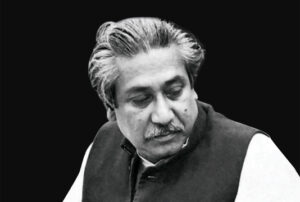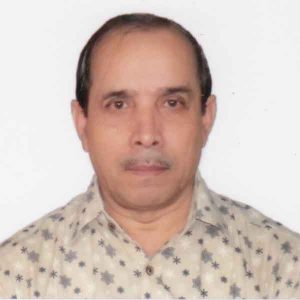The week that ended on Saturday was marked by two philosophical utterances by two men from Malaysia and Bangladesh. Mahathir Mohammad who has written a new political history by getting elected the Prime Minister of Malaysia for the second spell at the age of 92, has said an international exchange of visits of young people for greater understanding would help end wars and terrorism. Ending violence requires an understanding of their root cause with a view to dissuading their perpetrators from violence by removing the cause.Another wise statement has been made by Bangladesh’s opposition politician Mirza Fakhrul Islam Alamgir, “If you want to check rumours, you will have to allow people to talk (freely) and present the truth.” Fakhrul added, “Now people have no right to talk or express their views. The government is regulating the media and freedom of expression …”
Although Mahathir had been criticized for his tough handling of political opponents during the first 22-year spell of his tenure at the helm of Malaysia since 1982, he managed to draw world attention by raising voices of universal appeal. Now a grand old man he can be referred to as a ‘philosopher Prime Minister’ of Malaysia who has come back to power after a gap of 14 years to help end injustice in his home country.
“I believe that merely fighting against terrorism will not put an end to terrorism,” he said at Ritsumeikan Asia Pacific University in southern Japan. “We must know the reason why these people resort to terrorism, and if we know the reason, and we deal with the reason, then there is a chance that we can stop the acts of terror.” More broadly, he said, greater mutual understanding would provide opportunities to resolve conflict through means other than violence, American news agency Associated Press reported. Mahathir Mohamad said that eradicating terrorism requires more than a good defence.
Mahathir has the courage to raise his voice which is backed by popular mandate. And it was natural that he received an honorary degree from the like-minded Ritsumeikan Asia Pacific University of Japan.
Fakhrul Islam Alamgir’s statement in favour of a free flow of information has been corroborated even though from a different context by Prof. Golam Rahman of the Daffodil University, Dhaka. Former Chief Information Commissioner Prof Golam Rahman said, “People believe rumours when there is a dearth of information or obstruction to free flow of information of the mainstream media.”
About some recent rumours on social media regarding the killing and rape of some demonstrating students, he said many people still believe those rumours as the mainstream TV channels could not properly broadcast live the attacks on students by miscreants.
A former professor of Dhaka University’s Journalism Department, Golam Rahman said the government must ensure the free flow of information of the mainstream media so that people do not get confused with rumours and false information. He also underscored vigorous campaigns and discussions to make people aware of how they can avoid rumours and how they should use the social media. “The mainstream media can play a vital role in this regard,” he added.
One may recall a statement made by the vernacular Daily Ittefaq’s one-time popular columnist ‘Spastabhasi’ who did advise the military government of the 1980s to free information from secrecy for the common good. Drawing analogy from a famous quote in English, ‘Power corrupts, and an absolute power corrupts absolutely’, he remarked, ‘Secrecy corrupts and an absolute secrecy corrupts absolutely.’
It can be said based on the statements of the celebrities mentioned above, this is an age of information which cannot be withheld. Withholding of information would do greater harm than good. Exchange of information leads to understanding for resolution of disputes or conflicts. Free flow of information again drives rumours for false information out of circulation and vice-versa. This digital age has provided people with a vehicle of speedier and noise-free information exchange which, if properly managed, would accelerate development that will be sustainable.
– Mostafa Kamal Majumder



